Celebrating Research and Scholarship
Faculty and staff convened at NYIT de Seversky Mansion on New York Tech’s Long Island campus on March 27 to mingle and celebrate one another’s academic research and achievements at the Faculty Scholars Luncheon, a festive occasion and an unparalleled opportunity to hear, see, and appreciate the breadth and depth of scholarship at New York Tech.
This event commends New York Tech’s full-time and adjunct faculty and staff for the scholarly and creative achievements completed during the preceding calendar year in any of the academic fields represented by the university’s schools or colleges. Qualifying achievements include, receiving a grant, publishing original research articles in a nationally recognized peer-reviewed journal or book, and obtaining a patent, among others.
“There are so many good reasons to be an active researcher,” New York Tech President Hank Foley, Ph.D., said as he kicked off the luncheon. “You have the opportunity to mentor students and change their lives by showing them and bringing to life another side of the disciplines that they are studying.”
Dozens of scholars exhibited their posters and papers during the event, with three faculty members delivering a formal presentation of their most recent work. Those selected faculty are Associate Professor of Electrical and Computer Engineering Reza Khalaj Amineh, Ph.D., Assistant Professor of Biomedical Sciences Weikang Cai, Ph.D., and Assistant Professor of Biological and Chemical Sciences Jole Fiorito, Ph.D.
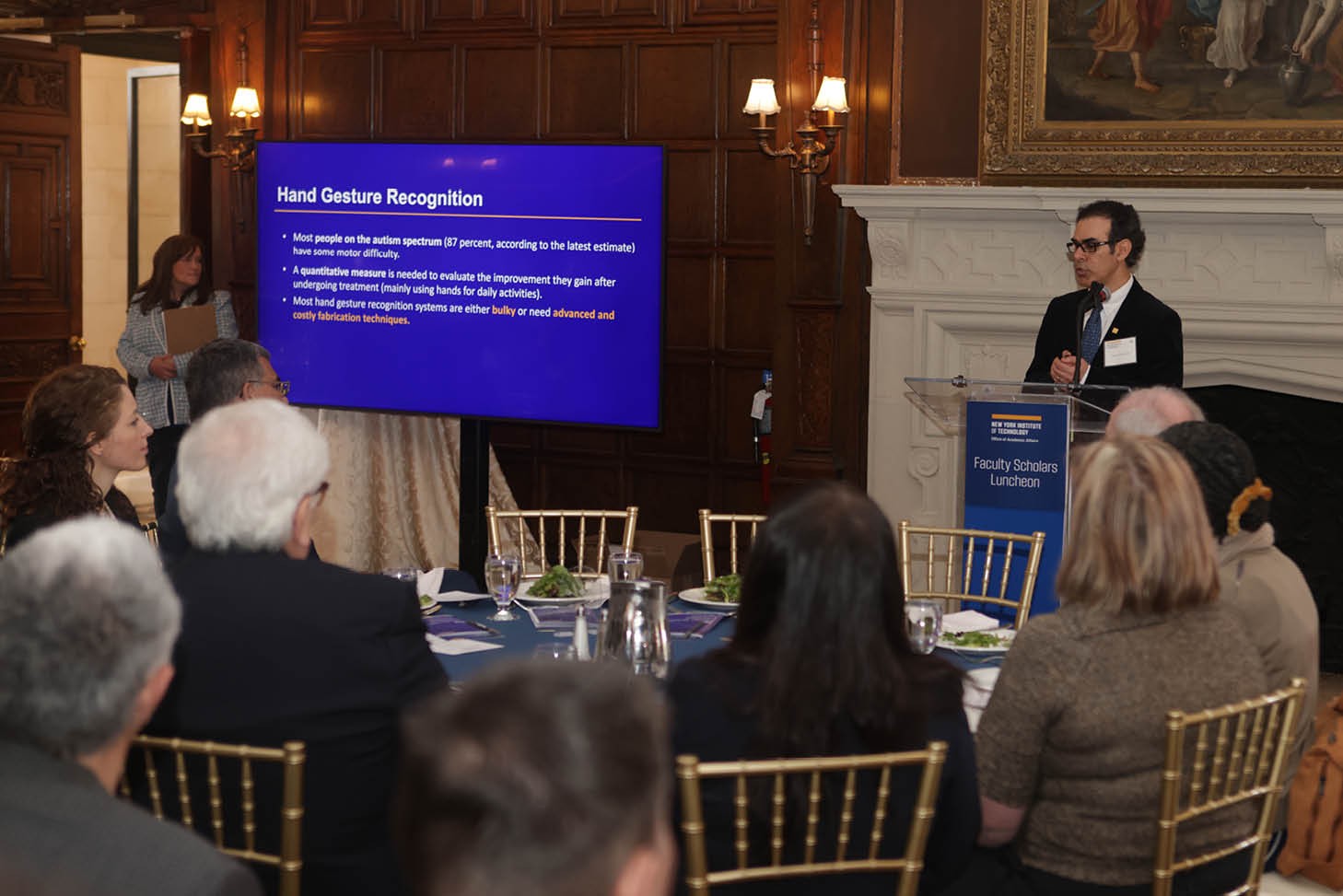
Amineh began the formal presentations with “Applications of Electromagnetic Waves in Sensing and Imaging,” a brief review of ongoing projects in the Applied Electromagnetics Lab located on the New York City campus. His work uses electromagnetic waves for imaging and sensing applications; the applications he highlighted include microwave imaging for nondestructive testing and biomedical diagnosis, hand gesture recognition that could significantly improve coordination and neurological processing in children with autism and those struggling with fine motor skills, water quality testing, and wireless soil sensing for smart agriculture.
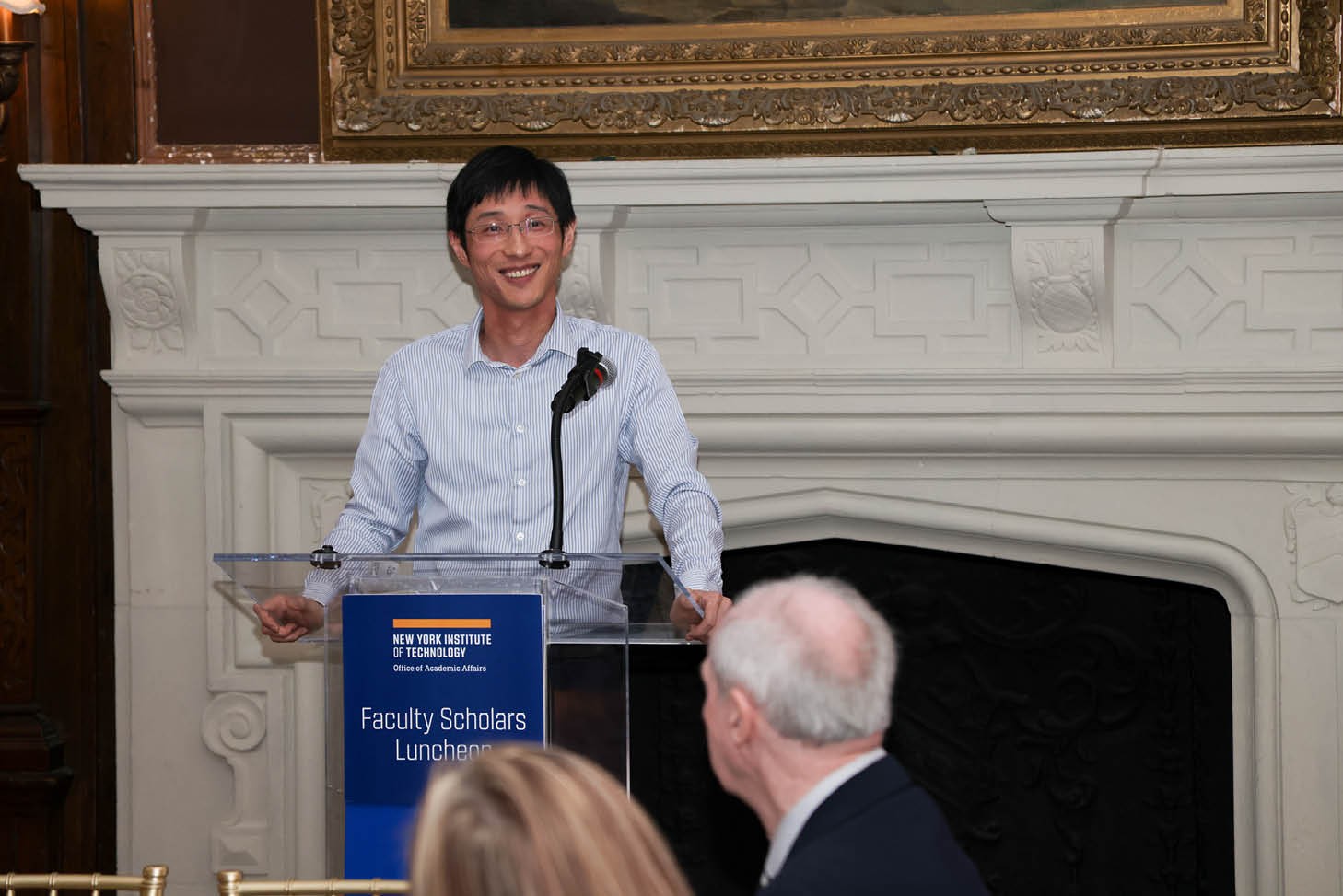
Next up was Cai with “Astrocytes: The Rising Star in Fighting Neurological Diseases.” He described his lab’s study of human diseases that affect the brain. Backed by a two-year grant from the National Institutes of Health (NIH), his research shows that astrocytes, traditionally overlooked and understudied brain cells, are playing crucial roles in diabetes, major depression, Alzheimer’s disease, and dopamine regulation. He presented his recent discoveries showing that astrocyte-initiated “broadcasting” systems can affect the development and progression of major depression and Alzheimer’s disease. These findings may have significant therapeutic potential to treat a variety of neurological diseases.
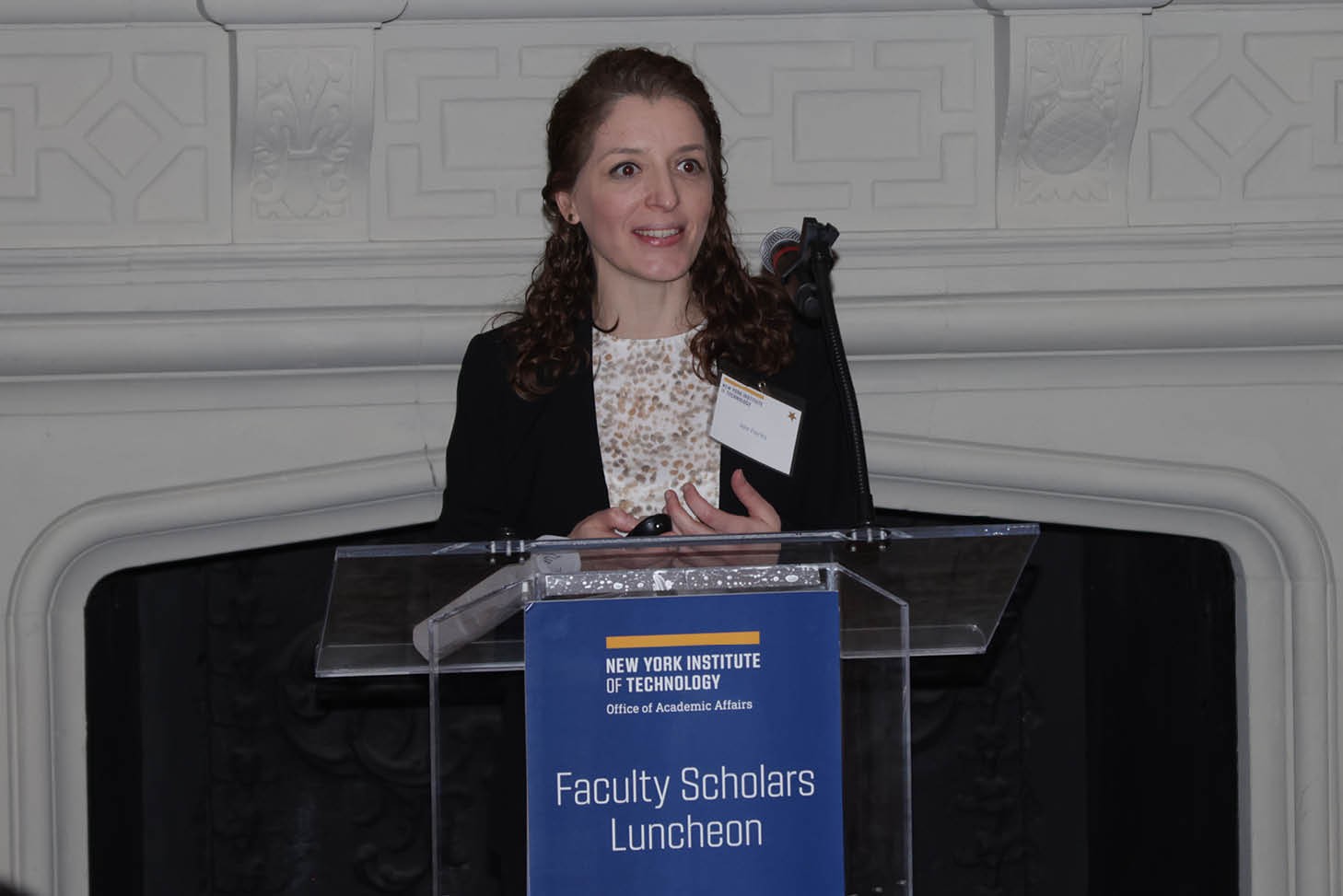
Fiorito closed the presentations with “Development of Multi-Target Molecules for the Treatment of Alzheimer’s Disease.” She presented her work on developing multi-target molecules for treating the disease. Supported by a three-year grant from the NIH National Institute of Neurological Disorders and Stroke, Fiorito’s research seeks to create a compound that inhibits two specific enzymes, thus helping improve learning and memory processes in Alzheimer’s patients. Her lab hopes to successfully develop a single-drug treatment to stop Alzheimer’s progression while reducing the side effects that taking multiple drugs can generate.
“I think you all change the world,” Provost and Executive Vice President Jerry Balentine, D.O., said in his address to faculty. “Not just by teaching students or by providing service to New York Tech, but by the research you do. I can guarantee you all of your research will impact our future world.”
More Features

Understanding the Cellular Underpinnings of Obesity
In his research, Assistant Professor Henry Ruiz, Ph.D., is looking to understand what makes fat cells grow, which could lead to new and improved obesity treatments.
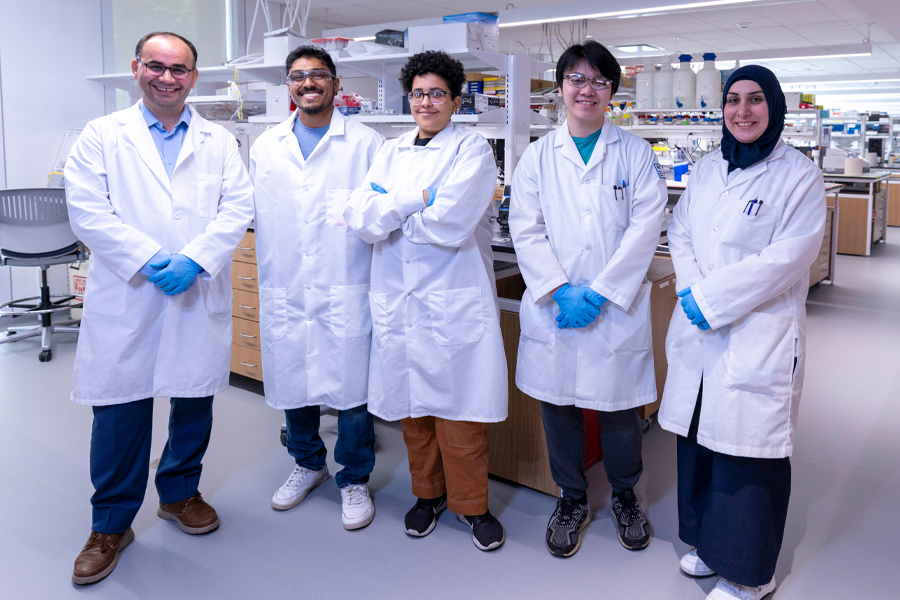
Blueprint for Healing
A multidisciplinary team of students is investigating solutions for wound healing that would speed healing and positively impact the lives of countless people.
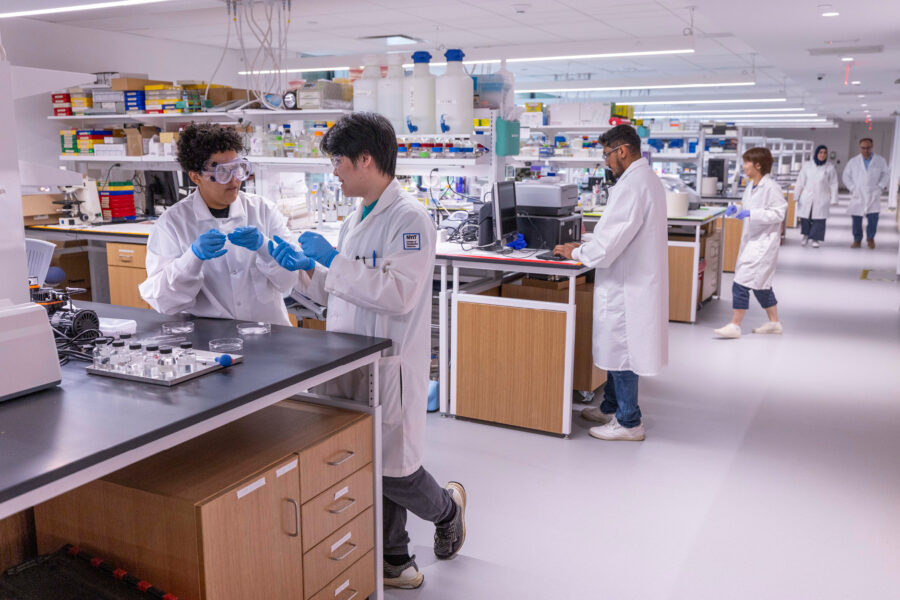
BRIIC by BRIIC
A look at the new Biomedical, Research, Innovation, and Imaging Center (BRIIC).
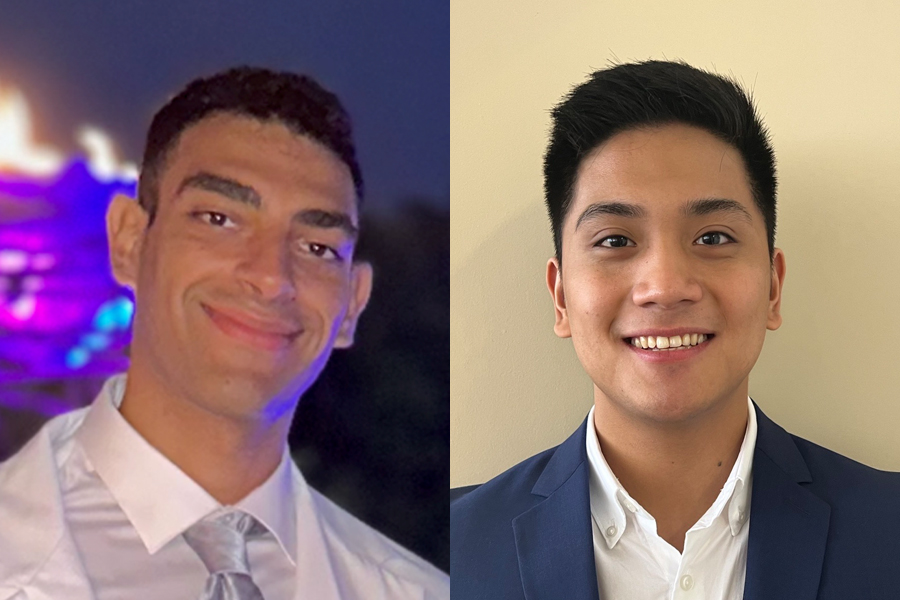
Using AI to Detect ECG Abnormalities
Student-led research uses artificial intelligence (AI) models to interpret abnormalities in electrocardiogram (ECG) test results.
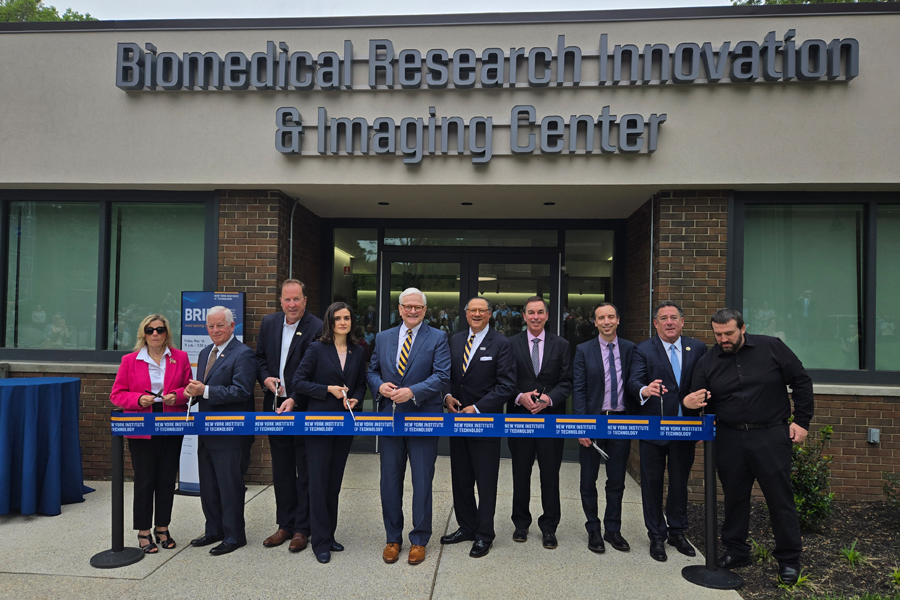
New Facility Fosters Interdisciplinary Biomedical Research
On May 16, New York Tech celebrated the official opening of the Biomedical Research, Innovation, and Imaging Center.
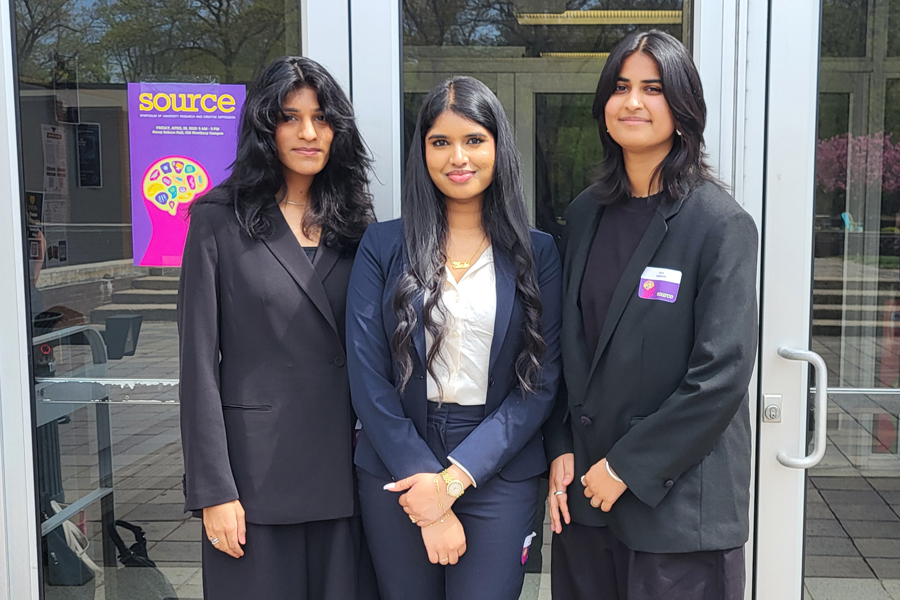
A SOURCE for Student Research
Hundreds of students gathered to present their academic research at New York Tech’s 22nd Annual Symposium of University Research and Creative Expression (SOURCE).